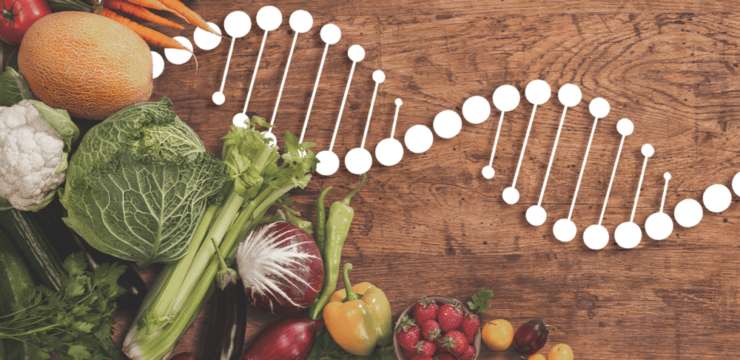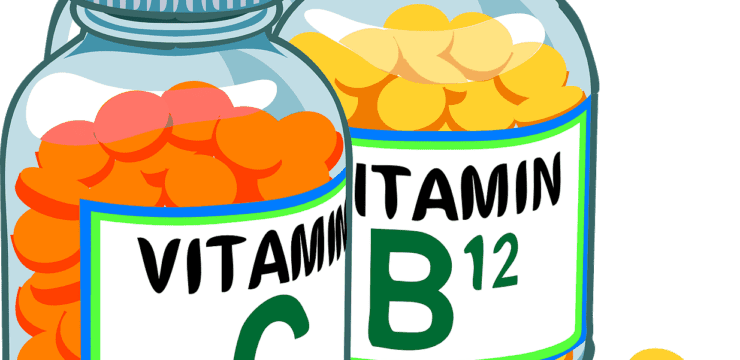The foods we eat can have the potential to be beneficial or harmful to our health. Poor nutrition can cause a variety of health issues,…


The foods we eat can have the potential to be beneficial or harmful to our health. Poor nutrition can cause a variety of health issues,…

Aging is a natural part of life and it can’t be stopped. Or at least, that’s what we used to think. Researchers at Intervene Immune,…

Regenr8 is a company we work with that developed an Epigenetic Biomarker Profile test to assess where your body is lacking in essential vitamins and minerals, hindering proper expression of biochemical pathways. The test determines the impact of your environment based on your unique gene function by identifying various metabolites based on the metabolic and enzymatic cellular process.Â
The test will show an assessment of overall cellular energy production, methylation activity, vitamins, inflammation and oxidative stress, sleep markers, muscular performance, gut dysbiosis, amino acids, and neurotransmitters. Based on your test results, they create an all-natural, organic, and plant-based superfood that you are able to drink daily to ensure your body is getting the nutrients it needs.

Nutrition is one of the most important aspects of life. Everyone eats at least one time a day and how we digest, taste, break down, and utilize that food is where our genetics come into play. Once we receive the test results from a patient, we review the genetic factors and predisposition they have. This allows us to create a science-baked personalized medicine program. This includes diet suggestions along with supplements. However, there are three potential diets that we recommend the most. Mediterranean, Low Carbohydrate, and Low Fat.Â

The way our bodies respond to and break down food is being studied more and commonly linked to many chronic health conditions. The reactions we have to certain foods have been known to cause international permeability and over time leaky gut syndrome, leading to inflammation and autoimmune diseases. Not all food reacts the same way inside the digestive tract, some individuals are fine eating milk while others have digestive complications. Specific genes can be tested to provide a deeper insight to how someone might respond to a food component. To test an individual’s genes, we use DNA Health from DNA Life.

LIVE WEBINAR with Sonja Schoonenberg DISCUSSING EPIGENETICSÂ
Register in advance for this webinar:
zoom.us/webinar/register/WN_KmtNKGexRN2o8p2LOsKrmwÂ
After registering, you will receive a confirmation email containing information about joining the webinar.

Vitamins are essential to the body as they are responsible for carrying out important biochemical pathways. Vitamins also play a significant factor in aging, medications, genetics, and can metabolize differently depending on gender. There are thirteen vitamins the body depends on. These vitamins are not able to be produced by our body so we must obtain them from our diet.Â
The fat-soluble vitamins we require are vitamins A, D, E, and K. The water-soluble vitamins we require are vitamins C and B (B1, B2, B3, B5, B6, B7, B9, and B12).Â

What is a disease? Over the years the definition of disease has evolved and changed as medicine became more advanced. Years ago, people used to think a disease was an actual entity or thing that had entered the body and was lying hidden causing disruptions. Now, we know that a disease is actually a disordered function. To properly treat the disease we need a treatment that is based upon the principle of restoring disordered functions to order.

Folate is a B vitamin naturally found in a variety of foods. The body can’t produce folate, that’s why it’s important to get it from…

Nutrition is considered to be one of the most well-understood environmental factors associated with changes in the epigenome. Nutrients in the foods we eat are…

Researchers are trying to understand how nutrigenomics can affect a person’s health. Studies have shown that epigenetics increases the risk of several health issues. Other…

The term allostatic load refers to any type of stress occurring in the body for long periods of time. Types of stress we encounter daily from environmental stress or psychological stress have the ability to alter the way our body operates. Stress is directly linked to causing inflammation. Stressors include: Trauma/mechanical, Infection, Toxicology, Nutrient Imbalance, Neurology, and Electromagnetic. When these stressors are present and coupled with genetic polymorphisms or epigenetics we see chronic issues arise. The chronic health conditions we see from stressors and epigenetics are IBS, Fatigue, Leaky Gut, Pain, Weight, Thyroid, Inflammation, Autoimmune, Depression, and Insulin Resistance.

Healthcare professionals commonly give nutritional recommendations based on an entire population, only sometimes changing these according to age, sex, and pregnancy. Over the last 20…

Genetics play a large role in the onset of diseases and human physiology. One thing we know now more than ever is the heavy impact that nutrition has on these genes and the triggers to “turn on†or “off†a disease marker. New research is revealing that lifestyle, dietary components, mindsets, medication, and environmental factors are also responsible for the increase or decrease of gene activity. To help reduce methylation dysfunction, remember to reduce stress, remove toxins, and restore your body with the proper nutrients it needs!